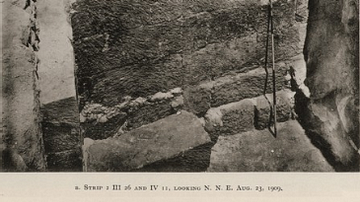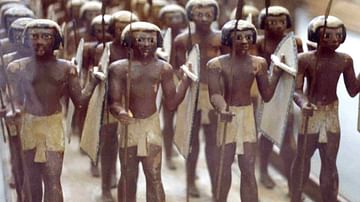Search
Search Results

Image
Archaeological Remains of Samaria
A picture from the archaeological site of Samaria. In the image are the archaeological remains of an Israelian settlement. Image was taken in 1909 CE. George Andrew Reisner. Harvard Excavations at Samaria, 1908-1910. Cambridge: Harvard...

Image
IPhone, Reinventing the Phone, 2007
A gouache on paper painting titled IPhone, Reinventing the Phone, 2007 by Nicha Sursock. This is the first of a series of 43 works representing the history of the USA. June 29, 2007. The first iPhone went on sale in Apple Stores. Crowds...

Image
Home-Assembled Amplifier, Electronics World
A home assembled amplifier featured as the cover illustration of the magazine Electronics World, September 1959, Volume 62 Number 3.

Image
Judean Pottery
Pottery Dining & Serving Vessels, 9th-6th Century BCE, Arad.
Israel Museum

Image
Drafter Using CAD, 1992
A 1992 photograph of a drafter working at a cimputer and using Computer-aided design (CAD). CAD is the use of computers (or workstations) to aid in the creation, modification, analysis, or optimization of a design. This software is used to...

Article
Trade in the Roman World
Regional, inter-regional and international trade was a common feature of the Roman world. A mix of state control and a free market approach ensured goods produced in one location could be exported far and wide. Cereals, wine and olive oil...

Article
Achievements of the Han Dynasty
The achievements of the Han dynasty (206 BCE - 220 CE), often regarded by scholars and the ancient Chinese themselves as the golden era of Chinese culture, would have lasting effects on all who followed, particularly in the areas of government...

Article
1453: The Fall of Constantinople
The city of Constantinople (modern Istanbul) was founded by Roman emperor Constantine I in 324 CE and it acted as the capital of the Eastern Roman Empire, or Byzantine Empire as it has later become known, for well over 1,000 years. Although...

Article
Weapons in Ancient Egypt
The ancient Egyptian military is often imagined in modern films and other media as a heavily armed and disciplined fighting force equipped with powerful weapons. This depiction, however, is only true of the Egyptian army of the New Kingdom...

Article
Allied Bombing of Germany
The Allied strategic bombing of Germany during World War II (1939-45) involved British and U.S. bomber planes attacking industrial cities, factories, railways, airfields, and dams. Over 600,000 civilians died as a consequence. The campaign...